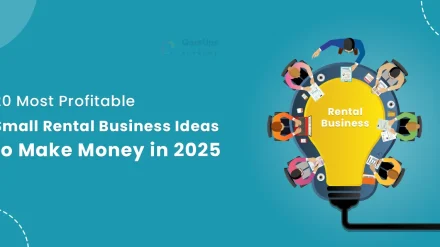You certainly know many popular online marketplace platforms. We are well acquainted with marketplace websites such as Amazon, eBay, Airbnb, Uber, and Alibaba, the giants of the online marketplace but who are the rising stars? Who are the other big players around the world? Which are the best places to sell niche products?
In 2025, the global marketplace is expected to see a continued expansion, with the e-commerce market projected to reach US$4.32 trillion in revenue, proving that online shopping has become an increasingly lucrative option for businesses across all sectors of industry.
I address all of these topics in this chapter, as well as the reasons why your company requires online markets and how it benefits you.
I have stated the reason why your business needs an online marketplace platform from the marketplace user perspective. Let’s start with you, the marketplace owner or investors.
What Is An Online Marketplace?
An online marketplace is a digital marketplace platform hosted on the internet that serves as a meeting point for customers and vendors from various locations.
It enables individuals, businesses, and service providers to create listings for the products or services they want to sell/rent.
These listings typically include detailed information such as product descriptions, pricing, images, and relevant specifications. Customers, in turn, can explore these listings, add items to their cart, and initiate transactions.
Online marketplaces offer tools and features to streamline the buying and selling process. They often provide search and filtering options, allowing customers to easily discover products or services of interest.
Additionally, they facilitate secure payment processing, ensuring that financial transactions are conducted safely. Many online marketplaces also include systems for customers to leave reviews and ratings, creating a feedback loop that can help others make informed purchasing decisions.
In essence, online marketplaces act as intermediaries, connecting customers and vendors in a convenient digital environment.
They bring together a diverse array of products and services, making it easy for customers to find what they need while offering vendors a broader reach for their goods or services.
These platforms vary in terms of their marketplace business models, from general marketplaces to service-based marketplaces like Uber and Airbnb, but they all share the fundamental function of enabling online platforms.
How Is The Online Marketplace Platform Beneficial For Newbies?
Reason for Owner & Investors
A business creates a marketplace to serve as a middleman between service providers and customers. To provide a smooth user experience and avoid downtime, the owner must ensure continuing platform support.
However, it is not required to control the primary content, which consists of details about clients, suppliers, products, and services.
Flexibility And A Multitude Of Choice Options
A marketplace’s key benefit is its ability to provide access to a wide variety of goods from several vendors. This ensures that consumers have access to high-quality products at affordable costs. Also, these products are readily available, and delivery wait times are minimal.
It’s not necessary to establish a sizable platform like Amazon or Allegro when developing a marketplace. You either establish a multi-branch business or choose to work just with vendors who are involved in a certain sector.
Earning Money By Creating A Space For Other Sellers
If a company owner wants to launch an online store but does not want to invest in producing their own goods, a marketplace is a fantastic option. However, this does not imply that those selling their own goods should not think about developing a marketplace platform.
You may benefit not just from selling your goods but also from providing a flexible infrastructure that enables running a business by giving a place for other sellers to do business.
With a marketplace, the owner is allowed to decide on the marketplace revenue models and sales commissions for the sellers who list their products on the website. Changes to your rates are always possible, and you may select a precise amount or percentage.
How can you locate partners that are interested in helping you build your market together? Since these platforms have cheap operational expenses and a low barrier to entry for sellers, they are quite popular with sellers who lack the funds to invest in their own websites. As a result, you’ll probably have no serious issues with this.
Sale of Complementary Products
Your sales may increase if you are able to find suitable partners. Get the vendors involved whose offers complement yours.
On marketplaces, the practice of “cross-selling” is common. For example, if a customer purchases an office desk from a vendor on your platform, they may also be given the option to purchase a desk chair (which is included in your offer).
This process results in a chain of transactions. Customers can purchase everything in one spot while vendors have a greater possibility of making sales.
Easier Promotion Of The Platform Within Many Communication Channels
Sellers frequently incur costs in addition to the price of developing a customized e-commerce website. The Internet must be used to market every online shop.
Because of the intense competition, paid marketing initiatives on social media or Google Ads frequently account for a significant portion of a company’s budget, particularly in the early stages of a sales platform’s operation.
In comparison to choosing a standard online store, creating a marketplace would probably allow you to market it more quickly. From managing and purchasing the inventory to analyzing buyer engagement and also development time of the online store it is far better to start an online marketplace.
You might also have admin tools in your marketplace that you can use to effectively gauge commission profit, seller earnings, and website traffic. You can use them to produce insightful reports on sales, commission fees, and the monthly earnings of all sellers.
This approach enables marketplace owners to launch sales without having to spend money developing websites or applications, which is crucial for startups and SMEs in particular. As a result, compared to alternative possibilities, starting a business is far less expensive. Now, let’s see why vendors need an online b2b marketplace platform.
Reason for Marketplace Platform’s Vendors
For omnichannel commerce to succeed, a marketplace is required. In spite of the fact that many service providers have their own platforms for service delivery, it makes sense to set up firm profiles on internet marketplaces in order to reach a broad audience and enhance the customer experience.
With regard to platforms that link customers and contractors, here individual specialists and agencies may provide services to businesses all over the world without holding in-person interviews at their offices.
The ability to read reviews directly on the internet and a quicker hiring procedure are further benefits that clients like.
The following options are provided by an online marketplace platform:
- To distribute goods and services, use a practical route.
- Reaching more consumers will increase the likelihood of securing a large increase in orders and sales.
- Lessen the cost of operations and marketing.
- Begin offering services right away.
- Be paid more from a new source
Organizations do not need to develop and apply an SEO plan to improve Google search rankings for their marketplace websites if a marketplace serves people from all over the world. They would be able to attract clients faster and expand their business internationally by posting information about their products or services on a worldwide platform.
For businesses to reach their customers and meet their wants, these online marketplaces that sell a variety of goods are fantastic. A fantastic way to increase sales is to sell your goods both through your own e-commerce channel and on a marketplace.
Your brand will be exposed wider than just on your own website if you have a reliable online presence across several platforms.
Why do businesses decide to use marketplaces for sales?
- Brand awareness
- Marketplaces offer an extra route for marketing and selling goods and services.
- Customers who read unbiased evaluations and shop on open platforms develop trust
According to survey results, selling goods on an online marketplace generates a 38% higher return on investment than selling goods just through a company’s website. A seller’s revenue increases by 120% when they sell on two marketplaces.
Making a solid marketplace strategy depends on a number of factors, including what you are offering and the accessibility of your items. E-marketers may boost their sales by utilizing a platform that generates, enhances, and delivers the feed to their primary channels.
A marketplace website might seem to be necessary for a brand that sells products online. The current market, however, has taken precedence over websites. Many entrepreneurs only sell their goods on external marketplaces, like Amazon, Airbnb, or eBay. The type of goods and services you’re selling, as well as your goals, have a significant impact on your decision to use an external site.
Online marketplaces are public areas where customers can browse a variety of products. These online markets provide choice, price comparison, and a more convenient shopping experience.
B2B Marketplaces have advantages for both the customer and the company, from quicker customer service responses to customizable shipping. Take a look at the needs of the marketplace to customers.
Reason for Marketplace Platform’s Customers
Customers like the larger choices offered by online marketplace platforms than those seen on the websites of individual companies since they let a large number of providers advertise goods or services on them.
Customers may quickly compare features, look up reviews and ratings, and examine shipping information to choose the most alluring offer.
Additionally, they may learn about other businesses’ loyalty programs and perks. Further, markets typically include a wide range of search criteria to help you discover the required item or information quickly.
Users are able to make purchase decisions more quickly as a result. Users’ shopping habits have changed as a result of the epidemic, and so have the techniques employed by companies to promote their goods and services.
Will More Launches Of Marketplaces Be In The Future?
Definitely…. Yes!!!
Consumers anticipate using markets or perhaps growing their usage of them in the future, according to studies from online marketplace platforms. In addition, seven out of ten consumers believe that an online marketplace is the most practical place to do their shopping.
The retail industry as a whole is undergoing a lot of change, but it is particularly active in the health and beauty, fashion, and food sectors as these businesses strive to succeed in a cutthroat market with escalating consumer demand.
Marketplace acceptance is crucial for a strong retail industry in the future. They are not just “nice to have” any longer; they are now unquestionably the method that customers choose to purchase, particularly the younger generations.
Retailers have the chance to significantly increase the range of goods they can offer their consumers through marketplaces, all while taking on minimal risk and spending little money on overhead.
The Future Of The Online B2B Marketplace Business Model
More startups are emerging that are dedicated to assisting suppliers serving both consumers and businesses to multi-tenant across different marketplaces in a category.
Listing and simultaneously managing inventory over several sites is a common part of this.
These organizations reduce “winner takes all” dynamics by enhancing sellers’ capacity to multi-tenant. Examples of several categories where this is starting to happen include
- Clothing (a seller may list on Depop, thredUP, and Poshmark in one click using sites like OneShop or Flyp)
- Rideshare (drivers may auto-switch between Uber and Lyft depending on rates and demand via applications like Mystro Drivers)
- Food Delivery (restaurants can manage and optimize listings across DoorDash, Uber Eats, and Grubhub via platforms like Otter and Deliverect)
The marketplace business will have a huge audience in the future and present too because people tend to prefer online over offline.
Thus, creating an online marketplace platform will bring you huge success in your business.
So, what are you waiting for start building your own online B2B marketplace platform now!






